Monks and Monkeys
Dear friends,
First of all, I want to thank you all for your beautiful reactions to my first letter. You encourage me to continue sharing about my journey and the personal insights I am gaining along the way. In sharing your reflections on what spoke to you or what inspired you, you enable me again to go deeper on my own path.
Thank you for that.
My journey continues and now led me to my beloved India (where of course Philips continues to accompany me … ☺).
India has always been a country which inspired me, challenged me and made me smile.
Usually no day passes by without being presented with a moment where my mind goes ‘what just happened here…?’ ☺
What I have experienced in India has always challenged my western mind and my deep rooted beliefs. The very foundations of what I thought is ‘right’ and ‘accepted truth’ turn out to maybe be up for discussion when I dared to perceive the world through an Eastern lens – this time has been no different.
A funny incident at the beginning of my trip reminded me that also this time around I am called to take off my comfortable glasses and be open for a fresh perspective…
I was walking through the town of Vrindavan (the birth place of Lord Krishna – God of Love, about 2h south of New Delhi) when something hit me from behind – first on my back and then on my head – before I knew it, a monkey was off with my glasses proudly in his hands. Inside of me I freaked out – I don’t see much without my glasses and the idea of spending the next weeks without them felt a bit scary.
I reached out for help with the locals, who were very willing to help in exchange for some money… After I gave the boy some Rupies he went off to buy a packaged juice drink, threw it at the monkey (who was happily chewing on my glasses) – the monkey (cunning but fair) caught the juice and dropped the glasses. The boy handed them back to me and I could continue the walk (which I did half-blind with the glasses safely stored in my bag).
Once I felt in a safe area, I put my glasses back on. Only to – not much later – get another slap over my head from behind and the whole scenario unfolded itself before me yet again… (that’s what you call learning resistance…).
These monkeys apparently had learned quickly (as were the locals it seemed) – after the same exchanges (fruit juice for glasses and then money for glasses), I walked again my merry ways (glasses in my pocket) and in reflective thought on what India wants to gently tell me in this sacred city of love… ?
Being open to remove my familiar perspective on things is where I landed…
In this update I want to focus on my two-week trip to Dharamshala, the capital of the Tibetans in Exile. It was a true highlight of my sabbatical so far.
The trip was organized by the International Campaign for Tibet of which I have been a member for many years. The Tibetan issue touches me very personally for a number of reasons: First, the whole drama of refugees has been a humanitarian challenge that has been a heated topic of political debate for decades in Europe (as it has in the US). During the European Refugee crisis in 2015 I was able to visit a refugee camp in Austria and get a taste of what these people, who are leaving their familiar homes and friends behind, are dealing with. Tibetans have been refugees now for 60 years with limited hope to be able to return back to their home country (while preserving their personal and religious freedom). Second, reading about the tragic history of Tibet since they were invaded by China in 1949 triggers many memories in me of what I have learned in school and through many conversations with WWII survivors about my Austrian/German historical inheritance. Most of all though, I believe the very rich Tibetan culture has something precious to offer to the world (especially today) and therefore is vital to be preserved.
So we were invited for a two week ‘go to Gemba’ visit, during which we had the opportunity to meet -amongst others- with the President (Sikyong) of the Tibetan Government in exile, The speaker of the Parliament in Exile, the personal secretaries and personal physician of His Holiness and we were able to join a session in Parliament.
Many doors were opened as our co-leader of the trip was Tencho Gyatso, who is a niece of the Dalai Lama. We also met various Rinpoches, Lamas and other significant leaders of Tibetan Buddhism, so we got a holistic understanding of Tibetan Culture, Religion, Medicine, way of life and Political situation.
What I learned is how deeply rooted the philosophy of ‘compassion’ resides within the Tibetan culture. Buddhist philosophy places a big emphasis on happiness and how we deal with suffering in our every-day lives. For suffering to occur there needs to be an external factor AND an internal factor coming together. The Dalai Lama reminds us that if we want to be happy, we have the choice to either try to control the countless external factors that are coming at us every day (which is a hopeless exercise) OR we focus on our internal factors, which actually is the only thing we can learn to control anyway. And the strongest tool we have to deal with our internal factors is compassion. Compassion for ourselves (including self-forgiveness and self-acceptance) and compassion for others (including patience and kindness).
It was fascinating for me how every conversation we had – whether it was with the doctor about how to heal our physical ailments and with our inner mental restlessness; or it was by talking with young refugees, who had just escaped Tibet through a grueling 30 day hike over snow covered mountains by night (to avoid Chinese border police); or it was with the school teacher of the orphan school; or if it was with the president talking about the bigger political context of human rights beyond the issue of Tibet alone – all of them, truly all of them ended up talking about compassion as the main force of healing the situation at hand.
It very powerfully taught me -yet again- that in every situation I deal with I always have the choice to either act out of a space of compassion or out of a space of fear.
The other key take away – mainly from the conversations we had with various religious leaders – was the thought that we don’t see the world around us as it is, but we see it as we are. They spoke a lot about the topics of interconnectedness (nothing exists separate from anything else) and impermanence (the fact that everything is constantly arising and dissolving). A big part of what we perceive is colored by the lens we look through, and therefore partly a projection of our inner world, our inner (mostly subconscious) assumptions. And we end up reacting to what we perceive as ‘coming at us from the outside’, (as independent from our inner assumptions) – so in a way we often react to a mirror image of our own projections. It made me realize again that what arises around me, the situations I get confronted with tell me more about myself than about something ‘external’. (Thank you monkeys & monks for reminding me of that and removing my pre-colored lenses to get a fresh look at the world around me…).
And if I want to learn to see things as ‘they are’ my inner work needs to be on examining my assumptions and ‘cleansing my inner lens’. Instead of trying to change others around me, it is probably more fruitful to change (or at least become more aware of) my own perceptions.
At the end of our trip we were attending a three-day teaching by the Dalai Lama. 7,500 people had gathered in the main temple to listen to his teachings. Our group got the special privilege to welcome His Holiness as he walked from his house to the temple and to receive a short blessing. However instead of walking by us he asked us to come inside for a brief conversation. So we sat in his office – with about only 20 people in total – while he spoke to us very passionately about the importance of the preservation of Tibetan culture, environment (the high mountains of Tibet are called the ‘third pole’ with enormous glaciers, which are melting at a faster rate than the main two poles) and the Tibetan language (which he considers key to accurately interpreting ancient scriptures) for the benefit of the whole world.
I cannot describe in words what it felt like to be in the presence of such an enlightened soul. He radiates compassion, energy and calmness in everything he says and in his whole demeanor. I was deeply touched by this unique experience and it made me want to cultivate my own compassion and calmness and be more of service to others around me.
And so I hope, that me sharing my journey is in service to you and inspires you on your own personal path.
Tashi Delek,
Claus

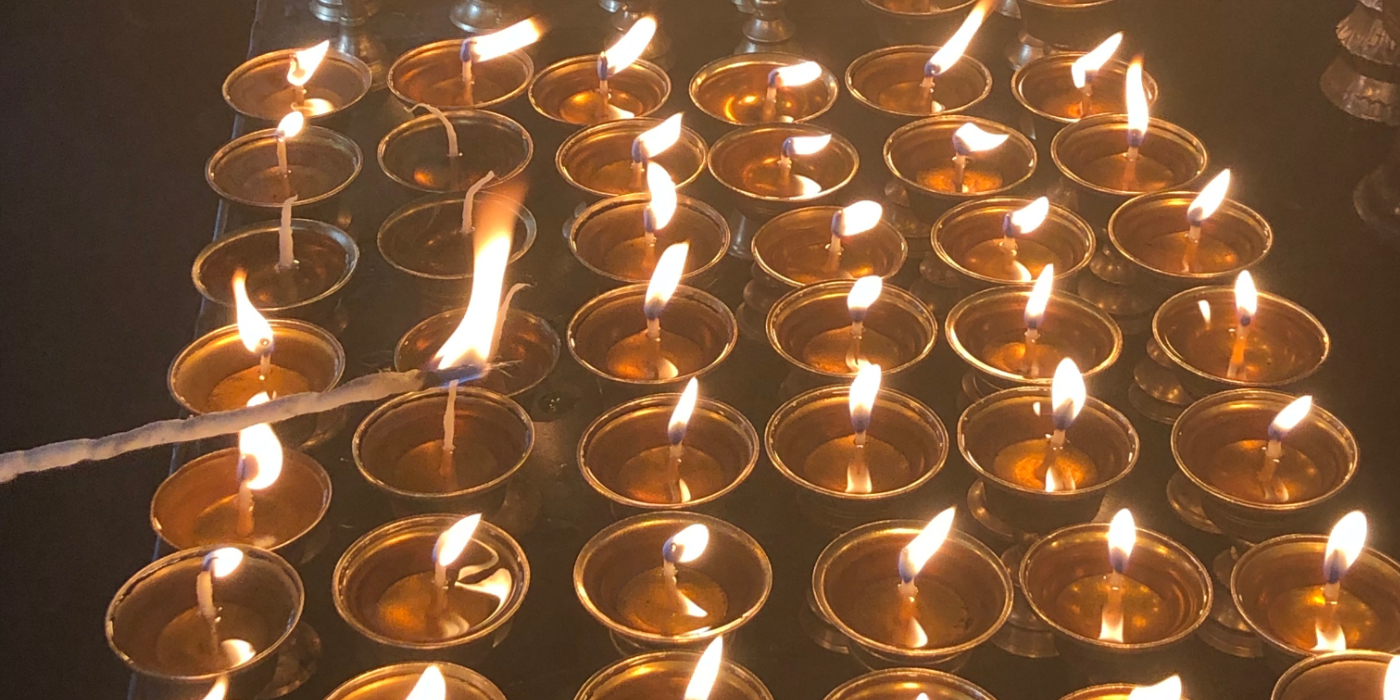
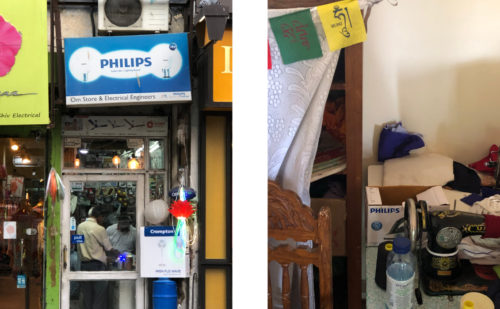
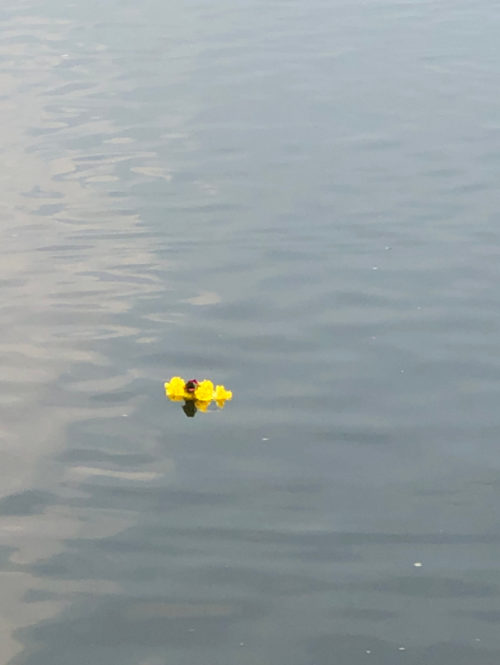
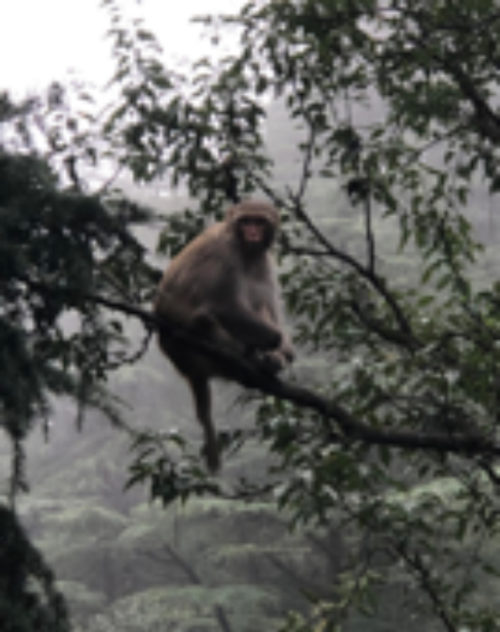


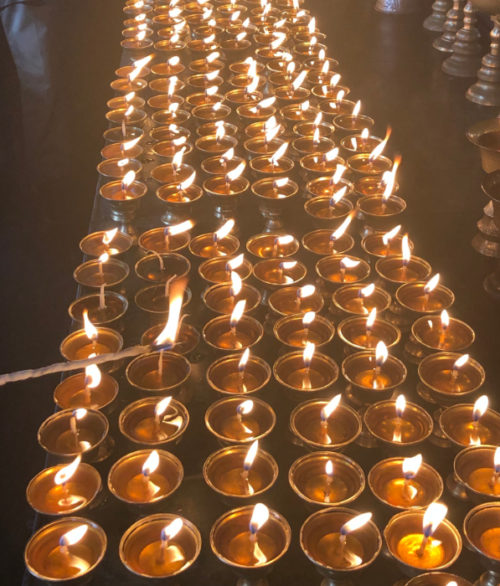



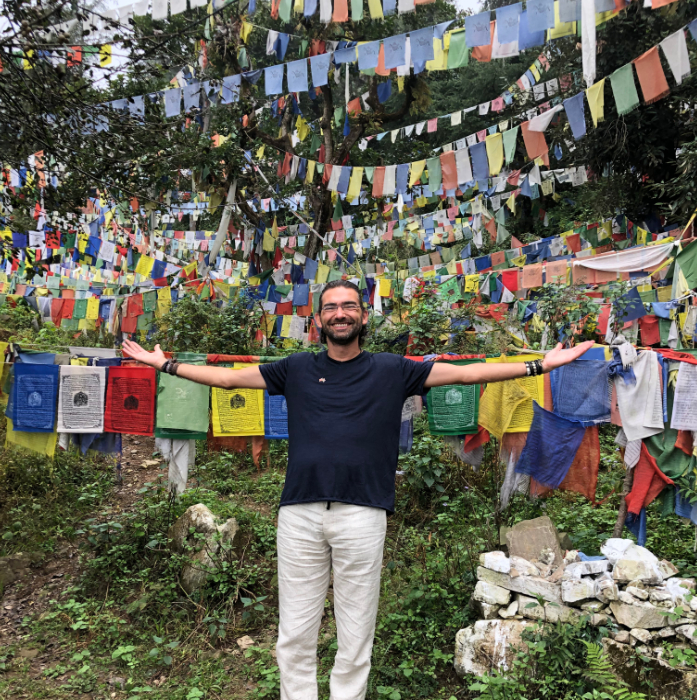
What an experience this must have been: meeting the Dalai Lama in person!
Thanks, Claus… please keep these inspiring stories coming!